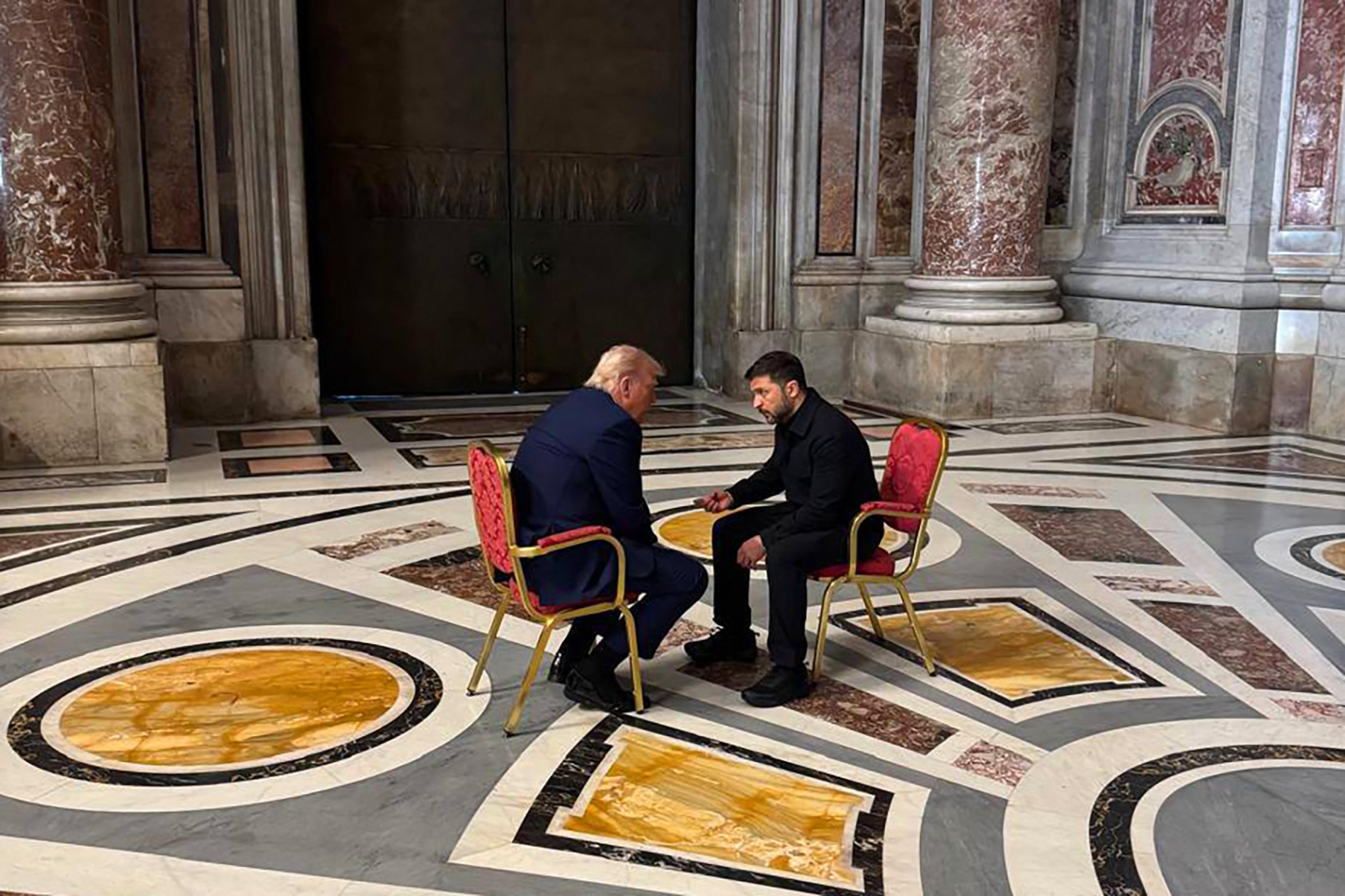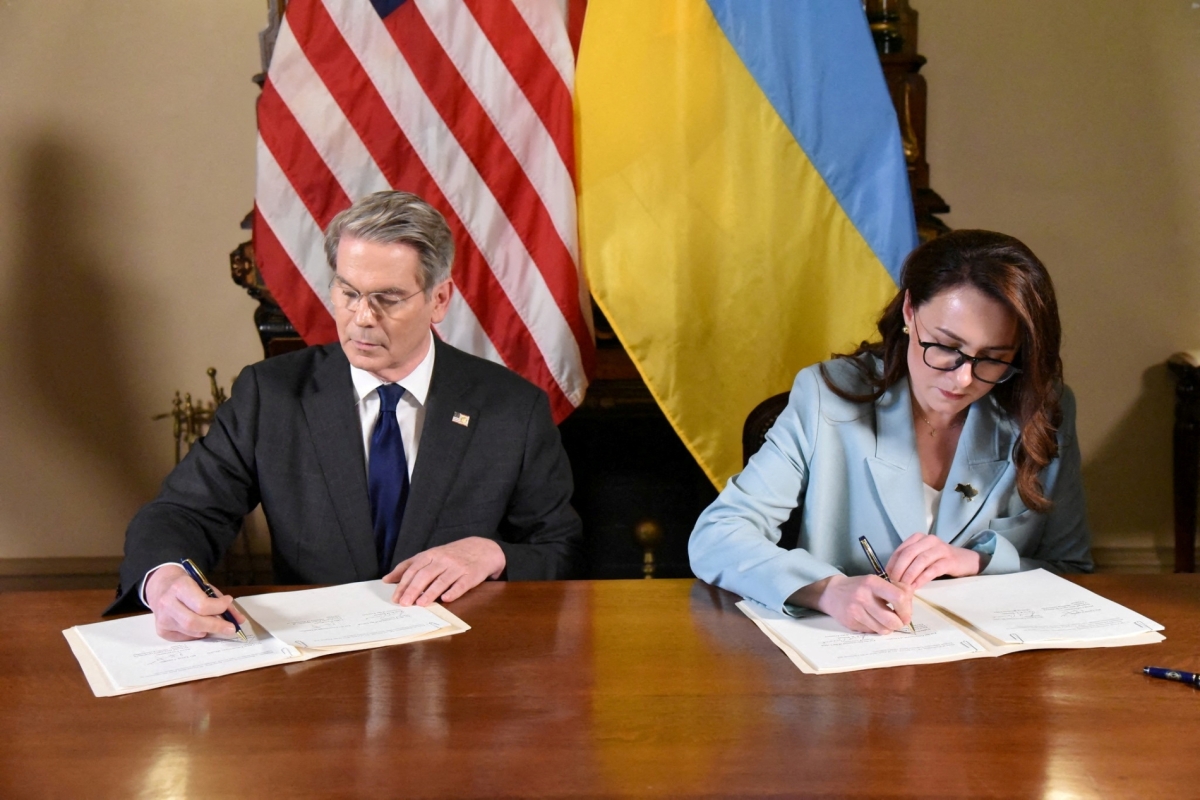It has taken several painful months of negotiations to finally reach a deal, but the “economic partnership agreement” signed between Ukraine and the Trump administration could have profound implications for the future of the Ukraine conflict.
Washington and Kyiv have been trying to thrash out a deal over sharing Ukraine’s natural resources since US President Donald Trump returned to the White House to begin his second term as president in January.
Having been a highly vocal critic of the previous Biden administration’s generous support for Ukraine in its war against Russia, which had reached an estimated $100bn by the time Trump returned to the White House, the Trump administration was keen to recoup as much of the money donated to Ukraine as possible.
Initial reports suggested that Trump was demanding a payback totalling $500bn from Ukraine as recompense for American military support in the Ukraine conflict—a figure that went well beyond any reasonable estimates of the amount of aid the Americans had actually provided.
According to leaked details of an outline trade agreement presented to Kyiv back in February, Trump was not just demanding that the US assume complete control over Ukraine’s critical minerals; he sought control over most of the country’s key economic assets, including ports and oil and gas production, for an indefinite period. Had such a deal been signed, Ukraine, which has fought a bitter three-year war to maintain its independence from Russia, would effectively have become beholden to the US.
Not surprisingly, Trump’s proposal prompted a furious response from Kyiv and is generally understood to have been the underlying cause of Ukrainian President Volodymyr Zelenskyy’s very public bust-up with Trump when he visited the Oval Office later that month.
Zelenskyy had travelled to Washington with the Trump administration fully expecting him to sign the trade deal as part of its efforts to implement a ceasefire in Ukraine. Zelenskyy’s refusal to sign the agreement led to a major rift between Washington and Kyiv, with Trump ordering the suspension of military aid and intelligence-sharing to Ukraine for a brief period before restoring it.
Relations between the two leaders have gradually improved since that low point, especially after Zelenskyy accepted the terms of the ceasefire deal for Ukraine brokered by the White House.

Hashing out a deal
Attempts to reconcile the two leaders’ differences finally resulted in Trump and Zelenskyy having an unscheduled bilateral meeting at the Vatican while they were both present in Rome to attend the funeral of Pope Francis. According to US officials, it was during this brief 15-minute meeting that the final details of the deal were agreed.
Under the terms of the agreement released so far, both sides have confirmed that it establishes an investment fund to search for minerals and outlines how revenues will be split.
The deal was finally agreed upon after Ukrainian Economy Minister Yulia Svyrydenko flew to Washington on Wednesday to sign the agreement with US Treasury Secretary Janet Yellen. After joining Bessent at a signing ceremony, Svyrydenko posted its key provisions on X, confirming that it has established a reconstruction investment fund to help attract Western investment in Ukrainian projects in the minerals, oil, and gas sectors.
She insisted the resources would remain Ukrainian property, and that Kyiv would have control over the extraction of the minerals. The partnership between Washington and Kyiv would be established on a 50/50 basis.

Coveted mineral mines
Ukraine is believed to possess around 5% of the world's critical raw materials, including significant quantities of graphite, a vital component in the production of electric vehicle batteries, as well as deposits of titanium and lithium. Ukraine’s mineral riches have been fiercely fought over during the war with Russia, with the Russians having already seized control of significant deposits in territory captured in eastern Ukraine.
The signing of the deal between the US and Ukraine certainly places Russian President Vladimir Putin in a difficult position, not least because the agreement explicitly accuses Russia of provoking the Ukraine conflict, with the Trump administration having previously adopted a more neutral position on the causes of the war.
Trump has claimed that signing a minerals agreement was the best way of securing American support for Ukraine. Trump has argued that the presence of American contractors in the country would deter Russia from carrying out attacks on Ukrainian infrastructure for fear of provoking an American military response.
While it is unclear whether the deal includes an explicit security guarantee from the US—something Zelenskyy has pushed hard for throughout negotiations—it is likely the US will contribute new assistance to Kyiv, which may include, for example, air defence systems.
In a statement, the US said the agreement "signals to Russia" that the Trump administration is "committed to a peace process centred on a free, sovereign, and prosperous" Ukraine.










